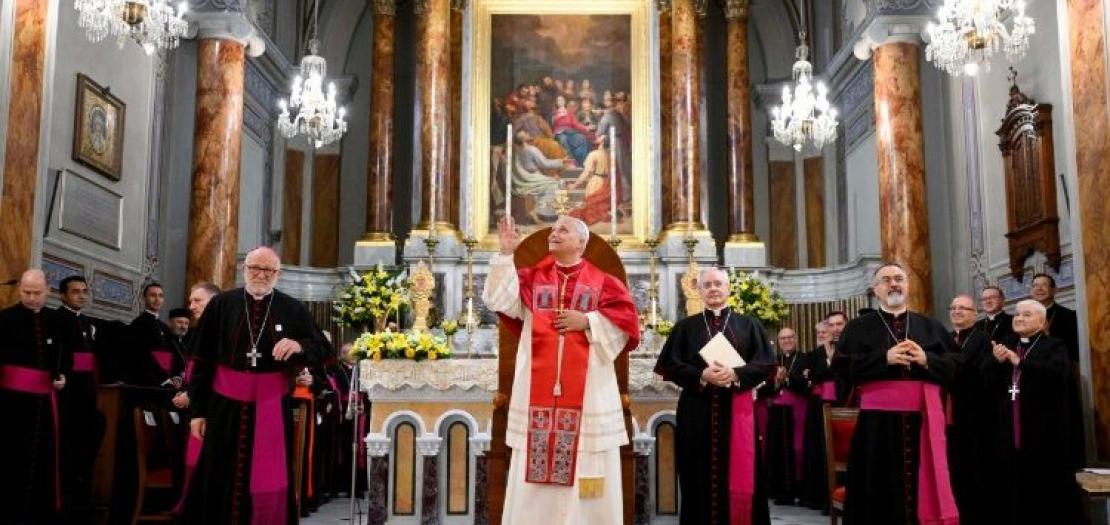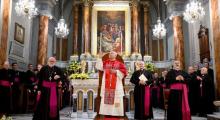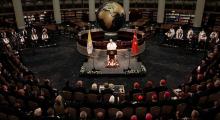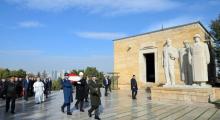Issued by the Catholic Center for Studies and Media - Jordan. Editor-in-chief Fr. Rif'at Bader - موقع أبونا abouna.org

Pope Leo XIV kicked off his second day of his Apostolic Journey to Türkiye and Lebanon with a meeting with bishops, clergy, consecrated persons, and pastoral workers in Istanbul.
Gathered in the Cathedral of the Holy Spirit, the Pope began by acknowledging the depth of Christian history in this land. He recalled that it was here that Abraham set out in obedience, that the disciples first became known as Christians, and that the early Fathers helped shape the foundations of the faith. He stressed that this heritage “is not simply to be remembered” but should inspire renewed vision and commitment today.
The strength found in smallness
The Pope then spoke of what he called “the way of littleness”. He noted that the Church’s mission does not depend on numbers or influence, reminding those present that “it is your Father’s good pleasure to give you the kingdom”. He emphasised that this perspective allows communities - even small ones - to look to the future with confidence rather than resignation.
Encouraging them to continue witnessing to the Gospel with “joy and hopeful perseverance”, he pointed to signs of life already present in Türkiye, including the steady number of young people knocking on the Church’s doors with questions about faith.
Priorities for mission
The Pope identified several areas where the Church’s commitment is particularly needed: ecumenical and interreligious dialogue, the transmission of faith to the local population, and pastoral service to refugees and migrants. He recognised that many pastoral workers themselves come from other countries and said this reality calls for “a special commitment to inculturation”, so that the Gospel is expressed in ways that resonate within Türkiye’s culture and language.
He described the significant presence of migrants and refugees as both a challenge and an opportunity, inviting the Church to continue welcoming and accompanying “some of the most vulnerable” in society.
Nicaea and today’s theological challenges
Marking the 1700th anniversary of the First Council of Nicaea, Pope Leo identified three challenges that remain relevant for the Church today.
First, he highlighted the need “to grasp the essence of the faith”, noting that the Creed continues to serve as a “compass” for unity and discernment. Second, he warned against a tendency he described as a “new Arianism”, where Jesus is admired as a historical figure but not recognised as the living Son of God. Third, he reflected on the development of doctrine, recalling the organic growth of the early Councils and affirming that doctrine, while rooted in unchanging truth, adapts its expression as understanding deepens.
A familiar model of service
Bringing his address to a close, the Pope recalled the years Saint John XXIII spent in Türkiye, drawing attention to his affection for the country and the steady commitment with which he carried out his mission. Finally, the Pope expressed his hope that pastoral workers today would continue with the same dedication, keeping alive the “joy of faith” and serving with courage.







